
Gozo: Malta's Tranquil Gem
Gozo, the second largest island in the Maltese archipelago, offers a serene escape with its quaint villages, stunning landscapes, and rich history. Known for its slower pace of life, Gozo is an ideal destination for those looking to unwind and immerse themselves in natural beauty and cultural heritage. The island is famous for its picturesque countryside, which is dotted with charming farmhouses and ancient temples. The Ġgantija Temples, a UNESCO World Heritage Site, are among the oldest free-standing structures in the world and a must-visit for history enthusiasts. Gozo's coastline is equally captivating, with crystal-clear waters and dramatic cliffs providing the perfect backdrop for swimming, diving, and snorkeling. Victoria, the island's capital, is a bustling hub of activity with its vibrant markets, historic Citadel, and inviting cafes. The Citadel offers panoramic views of the island and a glimpse into Gozo's storied past. For a more relaxed experience, visitors can explore the island's many small villages, each with its own unique charm and traditional Maltese architecture. Gozo is also renowned for its culinary delights, with fresh seafood, local wines, and traditional Gozitan dishes offering a true taste of the island. Whether you're exploring its natural wonders, uncovering its history, or simply enjoying its laid-back atmosphere, Gozo promises an unforgettable experience.
Local tips in Gozo
- Visit the Ġgantija Temples early in the day to avoid crowds and enjoy the serene atmosphere.
- Rent a bike or scooter to explore the island at your own pace and discover hidden gems.
- Try the local cheese, Ġbejna, which is made from sheep or goat milk and available in various flavors.
- Take a boat trip to the Blue Lagoon on the nearby island of Comino for a day of snorkeling and swimming.
- Attend a festa (local feast) if your visit coincides with one; these events offer a great insight into Gozitan culture and traditions.
- Don't miss the sunset at Dwejra Bay, where the sea meets dramatic rock formations for a breathtaking view.
Gozo: Malta's Tranquil Gem
Gozo, the second largest island in the Maltese archipelago, offers a serene escape with its quaint villages, stunning landscapes, and rich history. Known for its slower pace of life, Gozo is an ideal destination for those looking to unwind and immerse themselves in natural beauty and cultural heritage. The island is famous for its picturesque countryside, which is dotted with charming farmhouses and ancient temples. The Ġgantija Temples, a UNESCO World Heritage Site, are among the oldest free-standing structures in the world and a must-visit for history enthusiasts. Gozo's coastline is equally captivating, with crystal-clear waters and dramatic cliffs providing the perfect backdrop for swimming, diving, and snorkeling. Victoria, the island's capital, is a bustling hub of activity with its vibrant markets, historic Citadel, and inviting cafes. The Citadel offers panoramic views of the island and a glimpse into Gozo's storied past. For a more relaxed experience, visitors can explore the island's many small villages, each with its own unique charm and traditional Maltese architecture. Gozo is also renowned for its culinary delights, with fresh seafood, local wines, and traditional Gozitan dishes offering a true taste of the island. Whether you're exploring its natural wonders, uncovering its history, or simply enjoying its laid-back atmosphere, Gozo promises an unforgettable experience.
When is the best time to go to Gozo?
Iconic landmarks you can’t miss
Bażilika Tal-Madonna Ta' Pinu Mill Gharb
Discover Gozo's spiritual heart at the Basilica of Ta' Pinu, a stunning shrine of faith, history, and architectural beauty in a tranquil setting.
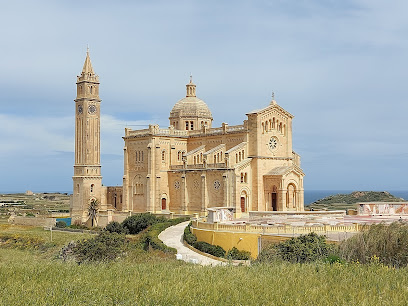
It-Tempji tal-Ġgantija
Discover the ancient Ġgantija Temples in Gozo, Malta, a UNESCO World Heritage Site and one of the world's oldest free-standing structures.
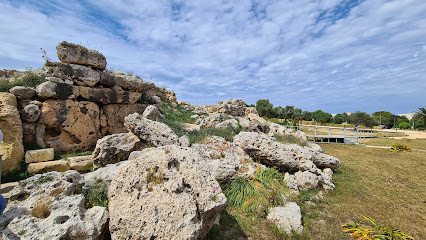
Salt Pans
Discover the ancient tradition of sea salt harvesting at the remarkable Xwejni Salt Pans on Gozo's stunning northern coast.
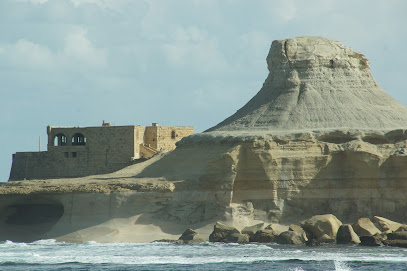
Inland Sea Dive Site
Discover Gozo's hidden gem: a stunning lagoon, thrilling dive site, and breathtaking boat tours all in one unforgettable location.
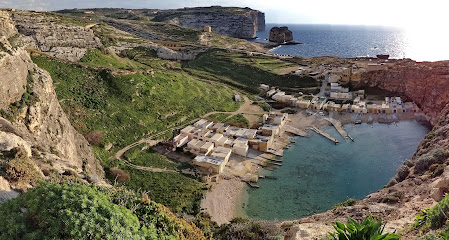
Foso e Interior Citadelle De Victoria
Explore Gozo's ancient Citadelle: A hilltop fortress with stunning views, rich history, and captivating architecture in the heart of Victoria.
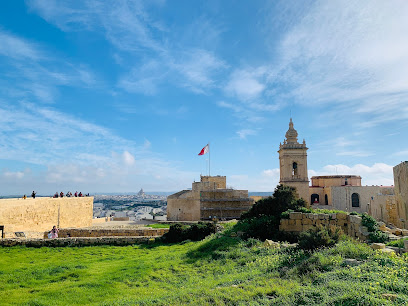
Wied il-Għasri
Discover Wied il-Għasri: a hidden Gozitan gem with stunning cliffs, crystal waters, and a tranquil escape for swimmers and divers.
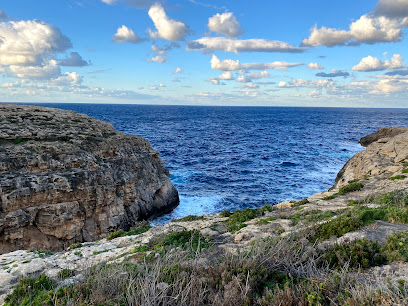
Wied il-Mielaħ
Discover Gozo's Wied il-Mielaħ Window: a stunning natural arch offering breathtaking views and a glimpse into the island's geological wonders.
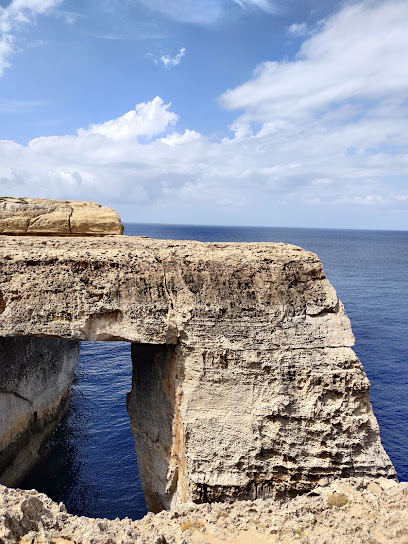
Tal-Mixta Cave
Discover Tal-Mixta Cave in Gozo: panoramic views, rich history, and stunning sunsets await at this natural wonder overlooking Ramla Bay.
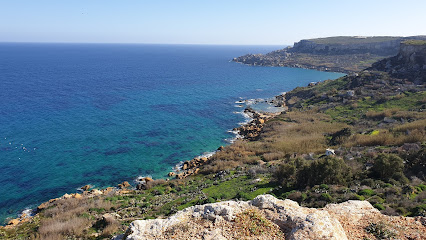
Villa Rundle Gardens
Escape to the serene Villa Rundle Gardens in Victoria, Gozo: a historic oasis of lush greenery, cultural landmarks, and family-friendly attractions.
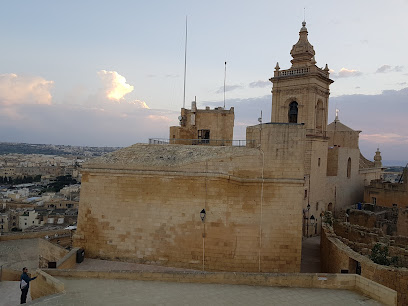
Mġarr ix-Xini
Discover Mġarr ix-Xini: Gozo's hidden gem with crystal waters, stunning scenery, and a historic watchtower. Perfect for swimming, diving, and relaxation.
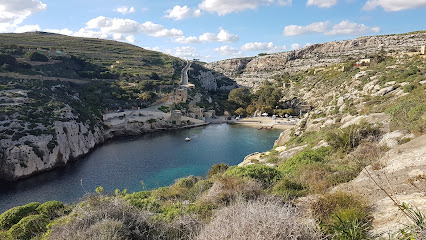
St George's Basilica
Discover the 'Golden Basilica' of Gozo: a Baroque masterpiece in Victoria, rich in art, history, and religious significance.
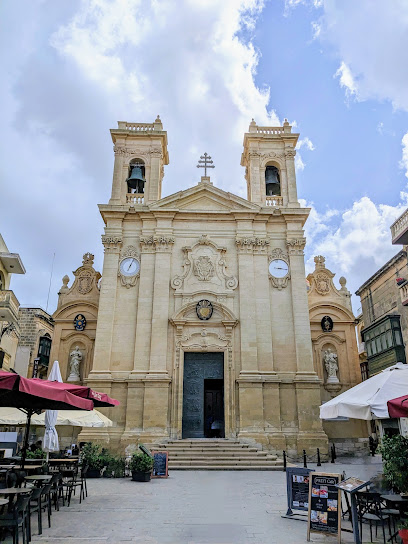
Rotunda St. John Baptist Church
Discover the Rotunda St. John Baptist Church in Gozo: a majestic basilica with one of Europe's largest unsupported domes and stunning panoramic views.
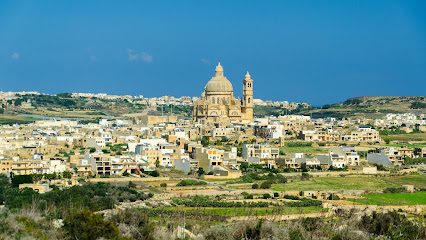
Cittadella Walkway
Discover panoramic views and rich history at the Cittadella Walkway in Victoria, Gozo. A must-visit landmark offering cultural and natural beauty.
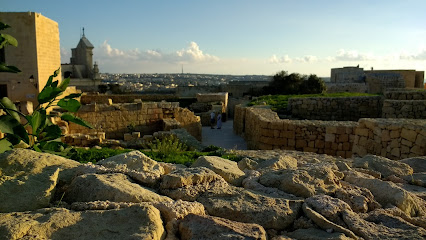
Ta' Ċenċ Cliffs
Discover Gozo's dramatic Ta' Ċenċ Cliffs: breathtaking views, unique flora & fauna, and ancient cart ruts await on this coastal hike.
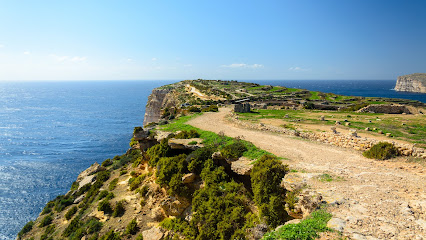
Cathedral of the Assumption
Discover Gozo's main church: a Baroque masterpiece with a fascinating history and stunning architectural illusions in the heart of Victoria's Citadel.
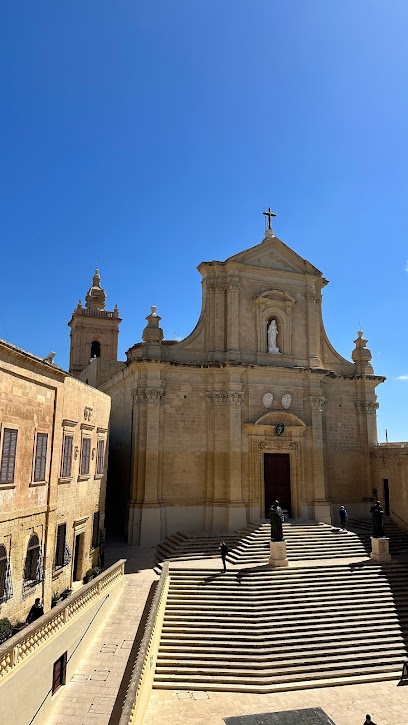
Unmissable attractions to see
Popeye Village
Explore the whimsical world of Popeye Village in Mellieħa, Malta - a delightful theme park perfect for family fun and unforgettable experiences against stunning coastal views.
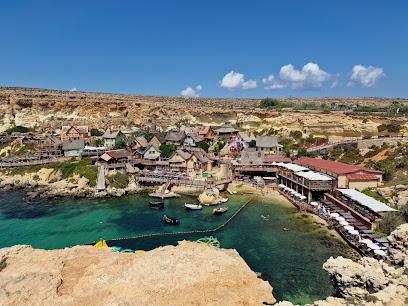
Basilica of the National Shrine of the Blessed Virgin of Ta' Pinu
Discover the architectural beauty and spiritual serenity of the Basilica of Ta' Pinu, a must-visit shrine in Gozo, Malta, surrounded by stunning landscapes.
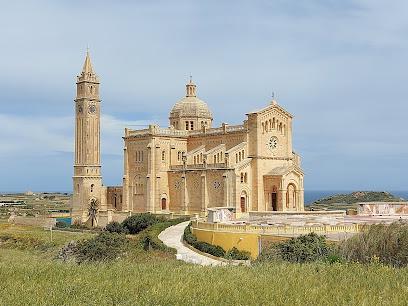
It-Tempji tal-Ġgantija
Explore the ancient Ġgantija Temples in Gozo, Malta – a UNESCO World Heritage Site and a marvel of prehistoric architecture.
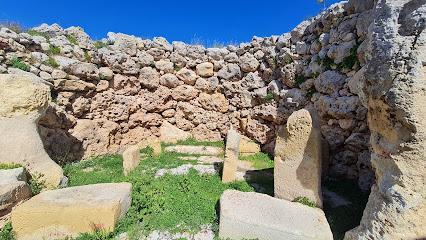
Mellieha Bay
Experience the idyllic Mellieha Bay, a stunning beach destination in Malta offering relaxation, adventure, and cultural richness for every traveler.
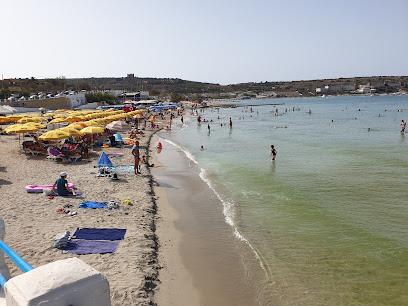
Xlendi Beach
Experience the breathtaking beauty of Xlendi Beach, a serene haven in Malta where sun, sea, and adventure await every visitor.
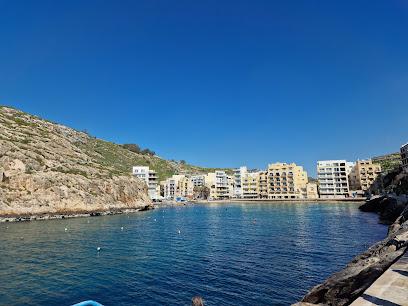
Inland Sea Dive Site
Discover the breathtaking Inland Sea Dive Site in San Lawarenz, Malta – a diver's paradise surrounded by stunning natural beauty.
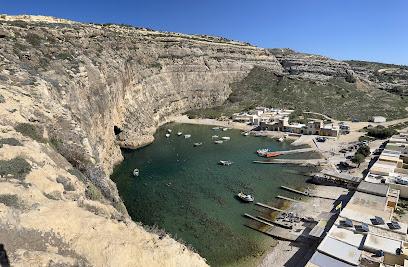
Ramla Beach
Experience the serene beauty and adventure of Ramla Beach, one of Malta's finest coastal escapes with golden sands and crystal-clear waters.
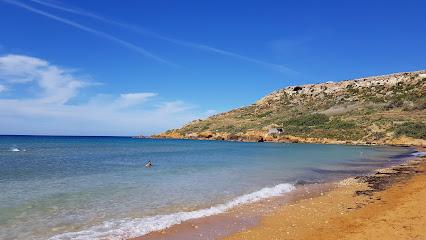
Ramla Bay Resort
Experience the perfect blend of relaxation and adventure at Ramla Bay Resort - a stunning seaside oasis in Mellieħa, Malta.
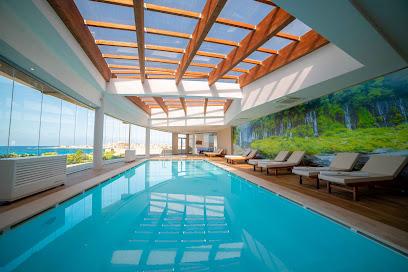
The Red Tower
Discover the Red Tower in Mellieħa, a historical gem offering breathtaking views and insights into Malta's rich heritage.
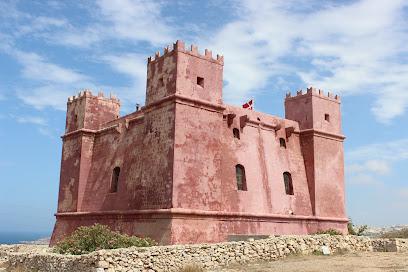
Tal-Mixta Cave
Experience the breathtaking views and natural beauty of Tal-Mixta Cave in Nadur, Malta, a perfect spot for nature lovers and adventure seekers.
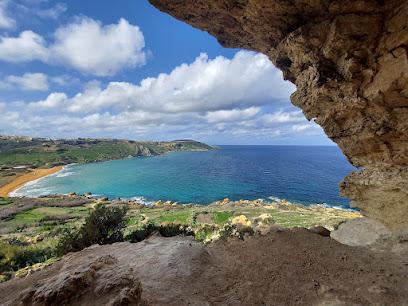
Wied il-Mielaħ Window
Explore the breathtaking Wied il-Mielaħ Window in Gharb, Malta - a natural wonder offering stunning coastal views and unforgettable experiences.
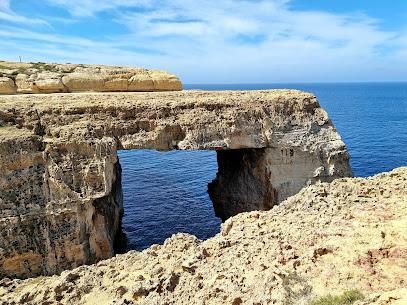
Villa Rundle Gardens
Explore the enchanting Villa Rundle Gardens in Victoria, Malta, a tranquil escape with lush greenery and vibrant flowers perfect for relaxation.
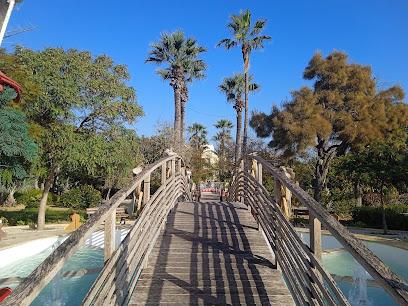
St George's Basilica
Explore the breathtaking St George's Basilica in Victoria, Malta—an architectural marvel steeped in religious significance and artistic beauty.
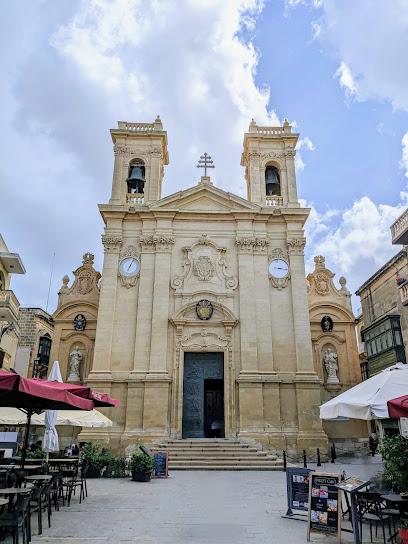
Mġarr ix-Xini
Explore Mġarr ix-Xini, a serene beach in Gozo, Malta, offering stunning views, swimming, and a taste of the island's natural beauty.
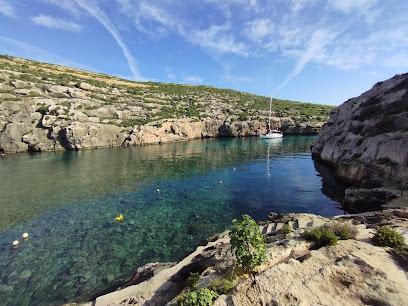
Għadira Bay
Discover the beauty of Għadira Bay, Malta's premier beach destination, featuring golden sands, crystal-clear waters, and endless recreational opportunities for all.
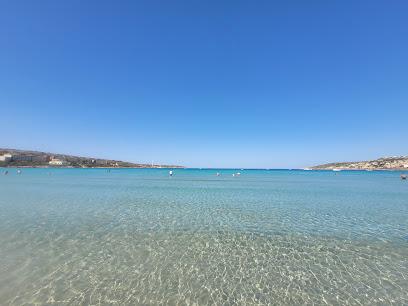
Essential places to dine
Qbajjar Restaurant Gozo
Experience authentic Gozitan cuisine at Qbajjar Restaurant Gozo – where fresh seafood meets stunning coastal views.
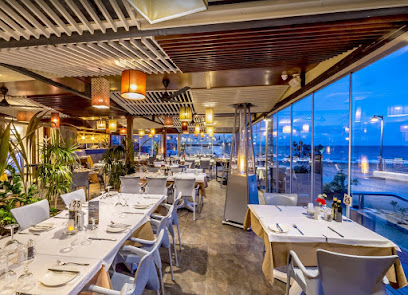
Country Terrace Mgarr Gozo Malta
Discover authentic Maltese cuisine at Country Terrace in Gozo – where breathtaking views meet delectable flavors.
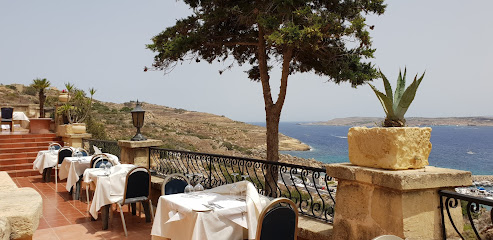
Azure Window
Experience exquisite dining at Azure Window, where stunning views meet delicious Mediterranean cuisine in beautiful Malta.
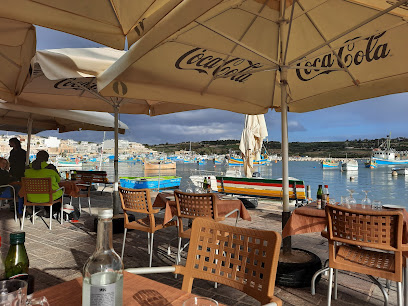
The Boathouse Restaurant
Discover exquisite Mediterranean cuisine at The Boathouse Restaurant in Xlendi - where every meal is a feast for the senses.
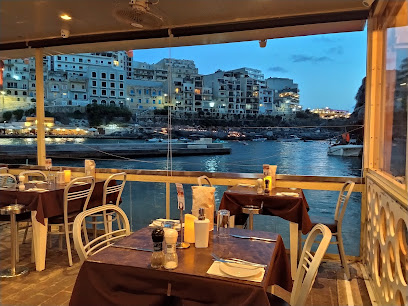
Ta' Karolina Restaurant
Discover the essence of Malta with every bite at Ta' Karolina Restaurant - your destination for authentic Maltese flavors.
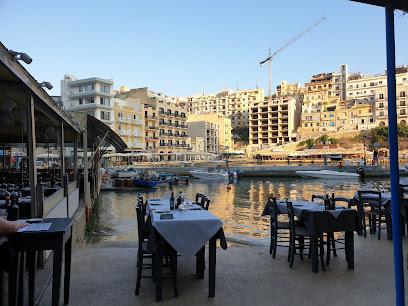
Il-Kartell Restaurant
Experience authentic Mediterranean flavors at Il-Kartell Restaurant in Marsalforn—where stunning views meet exquisite cuisine.
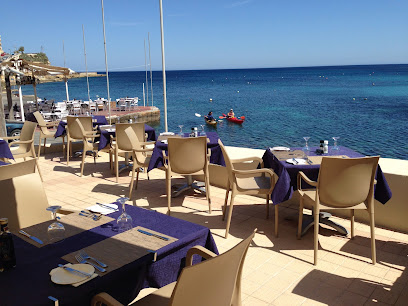
Ping's Dynasty Sushi Chinese Restaurant Gozo
Experience the best of Asian cuisine at Ping's Dynasty Sushi Restaurant in Gozo - where every dish tells a story.
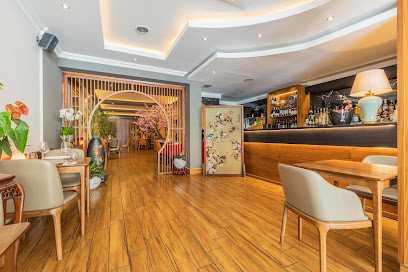
Maldonado Bistro Gozo
Discover authentic Mediterranean flavors at Maldonado Bistro in Victoria, Gozo - a must-visit for food lovers seeking unique dining experiences.
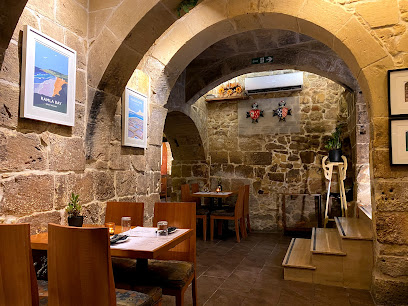
Xerri il-Bukkett
Discover Xerri il-Bukkett: Where Exquisite Local Cuisine Meets Breathtaking Views in Qala, Gozo.
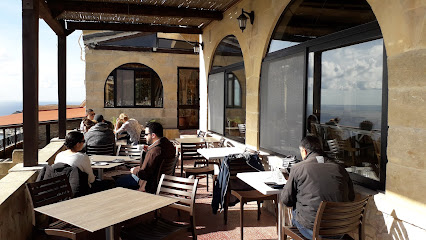
Casa Vostra
Experience authentic Maltese cuisine at Casa Vostra in Rabat, Gozo - a perfect blend of local flavors and Mediterranean charm.
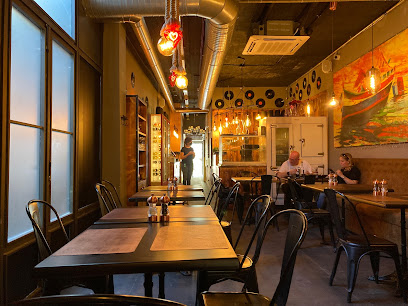
one80 Kitchen at Mgarr Yacht Marina
Experience exquisite local cuisine with breathtaking views at One80 Kitchen in Mgarr Yacht Marina.
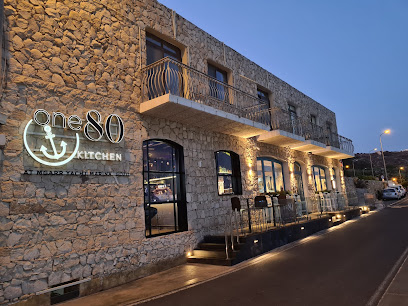
Latini Restaurant Xaghra Gozo
Experience authentic Maltese flavors at Latini Restaurant in Xaghra, where tradition meets modern hospitality.
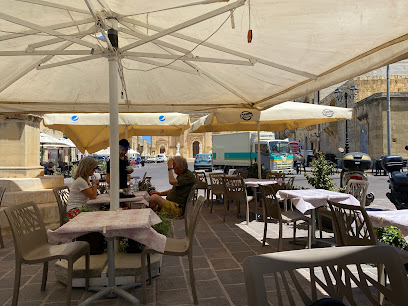
The Pierre's Restaurant
Experience authentic Italian cuisine with stunning marina views at The Pierre's Restaurant in Marsalforn.
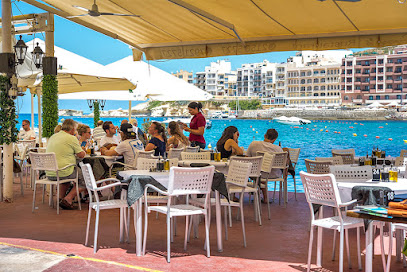
It-Tokk Restaurant
Experience authentic Maltese cuisine at It-Tokk Restaurant in Victoria - where tradition meets taste.
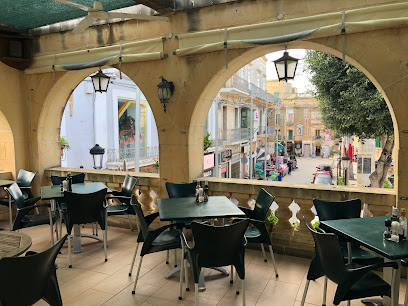
Roża | Traditional food Restaurant
Experience authentic Maltese flavors at Roża Restaurant in Victoria - where tradition meets taste.
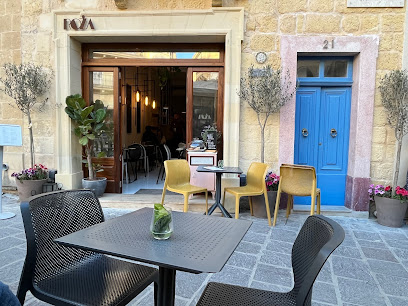
Markets, malls and hidden boutiques
The Duke Shopping Mall
Discover an array of shops, dining, and entertainment at The Duke Shopping Mall in Victoria, Malta's ultimate shopping hub.
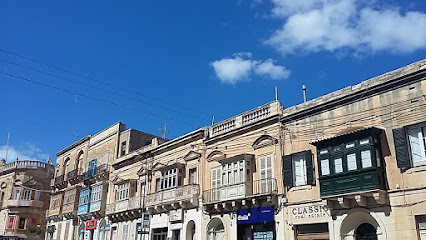
Arkadia Commercial Centre
Experience shopping and dining at Arkadia Commercial Centre, Gozo's premier retail destination, blending local charm with a modern shopping experience.

Savina Artisan Centre, The Magro Food Village
Discover the essence of Maltese culture at Savina Artisan Centre, where local craftsmanship meets culinary excellence in the heart of Gozo.
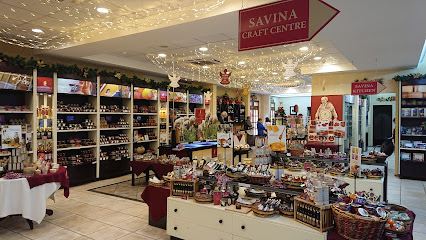
Ta' Dbiegi Crafts Village
Explore the vibrant Ta' Dbiegi Crafts Village in Gharb, Malta - a treasure trove of local craftsmanship and unique artisan creations.
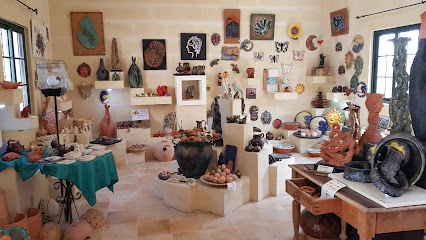
Tigrija Palazz
Experience the vibrant shopping scene at Tigrija Palazz in Victoria, Malta, where local culture meets contemporary retail.
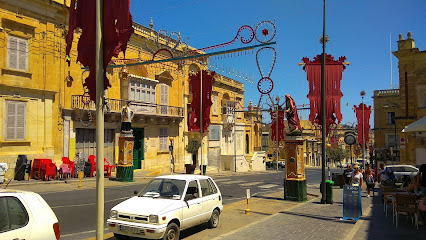
Kathleen's Boutique
Explore Kathleen's Boutique in Victoria, Gozo for unique fashion and local crafts that capture the essence of Maltese culture.
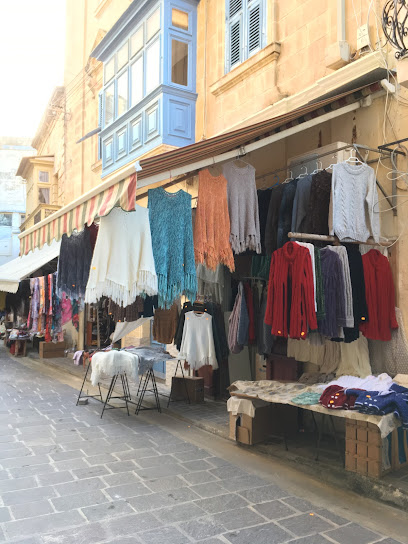
House of Gozo
Discover the essence of Gozo at the House of Gozo, a unique gift shop showcasing local artistry and culture.
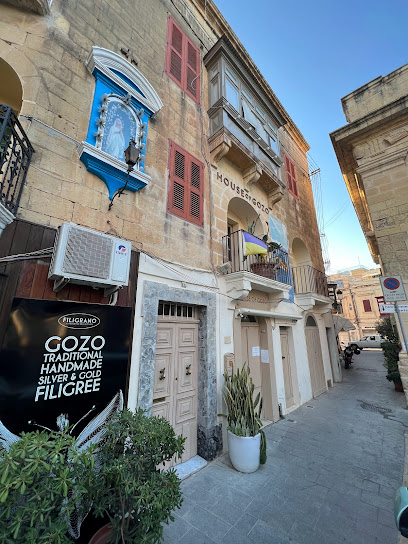
Vogue Xchange
Discover unique vintage treasures at Vogue Xchange in Victoria, Malta - a fashion haven for those seeking one-of-a-kind clothing.
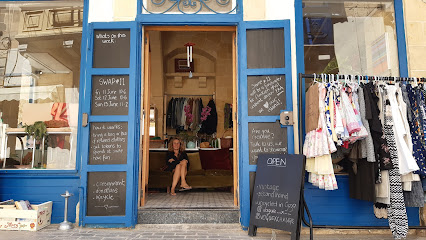
WooW
Discover the essence of Maltese fashion at WooW, a charming clothing store in Victoria, offering unique styles and a welcoming atmosphere.
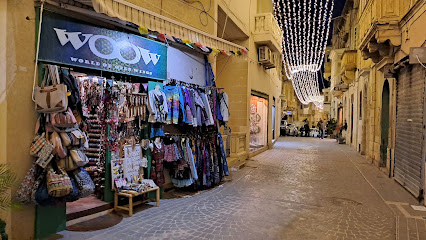
Charlies Antiques - Gozo - Malta
Explore the hidden gems of history at Charlies Antiques in Gozo, Malta's premier destination for vintage treasures and unique collectibles.
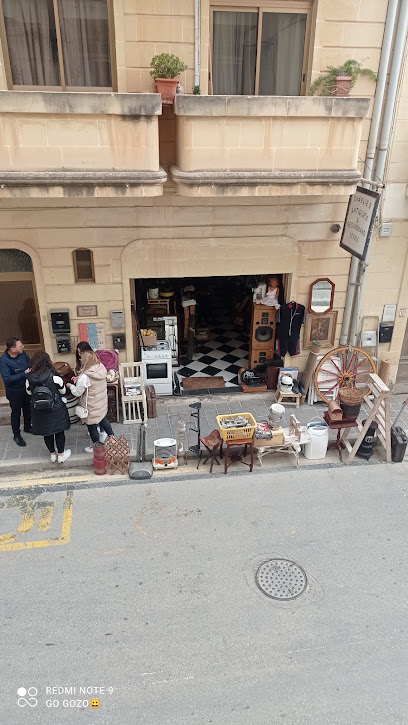
It-Tokk Gozo Traditional Food
Discover the authentic tastes of Gozo at It-Tokk, where every bite tells a story and every souvenir captures the island's charm.
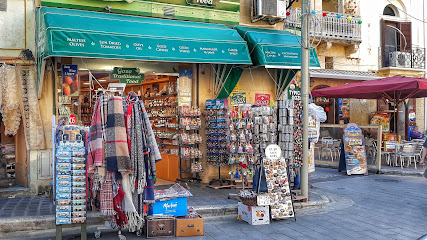
celio* Gozo
Discover the latest trends and unbeatable bargains at celio* Gozo, your go-to clothing store in Victoria, Malta.
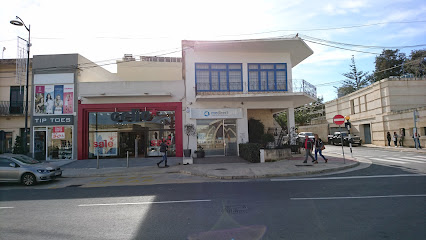
The Liqueur Shop
Explore The Liqueur Shop in Gozo for an exquisite selection of wines and premium cigars, experiencing the island's rich beverage heritage.
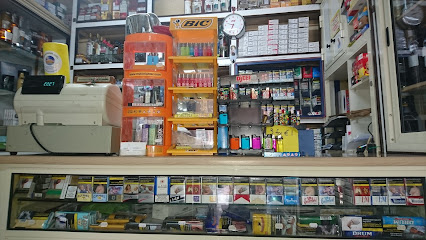
The Model Shop
Discover a magical world of toys and models at The Model Shop in Victoria, Gozo. A perfect stop for families and toy lovers alike!
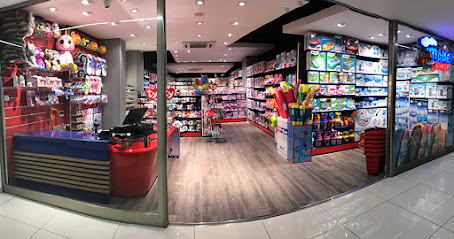
Ivy Crafts Souvenir Shop
Discover the charm of Gozo at Ivy Crafts Souvenir Shop, where handmade treasures and local artistry await every traveler.
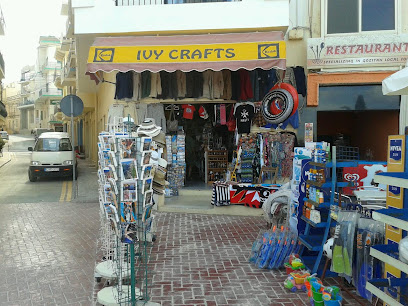
Essential bars & hidden hideouts
Ta' Frenċ
Experience the best of Maltese cuisine at Ta' Frenċ, Gozo's premier fine dining restaurant, where culinary artistry meets breathtaking views.
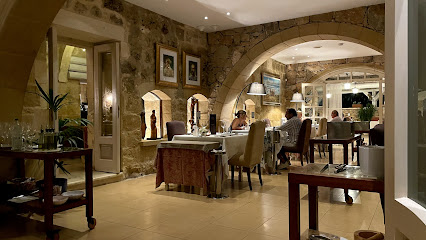
HOG
Experience the vibrant atmosphere of HOG, a top bar and bistro in Victoria, Gozo, offering delightful dishes and refreshing drinks.
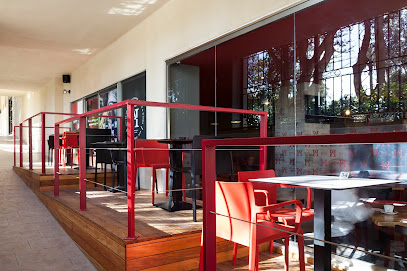
Zeppi's Pub
Experience the local charm at Zeppi's Pub in Qala, where delicious food, refreshing drinks, and friendly faces await every visitor.
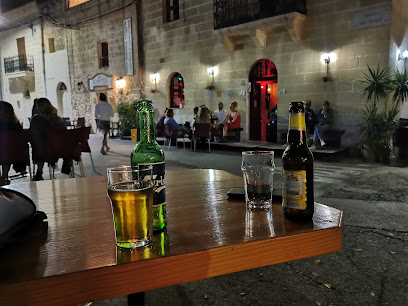
Ferdie's Restaurant & Cocktail Bar
Discover delicious Mediterranean flavors and vibrant cocktails at Ferdie's Restaurant & Cocktail Bar in Gozo, Malta's culinary treasure.
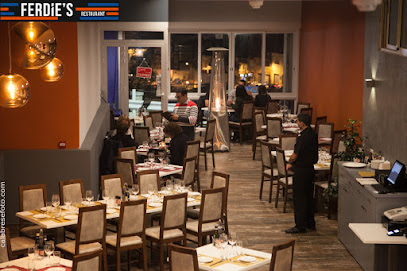
Front Bar
Experience the vibrant atmosphere and delightful refreshments at Front Bar, a top destination in Gozo for tourists seeking relaxation and enjoyment.
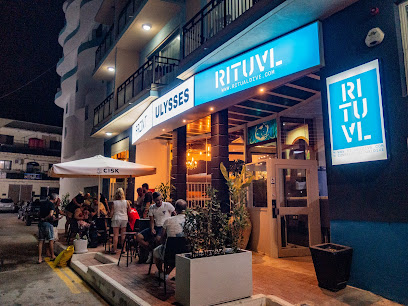
Gebuba
Discover the lively ambiance of Gebuba in Nadur, Gozo – a perfect spot for cocktails, local brews, and unforgettable nights.
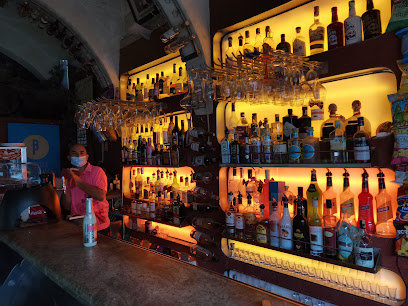
Gleneagles Bar
Discover Gleneagles Bar in Gozo - an inviting spot for drinks, local culture, and unforgettable memories under the Mediterranean sky.
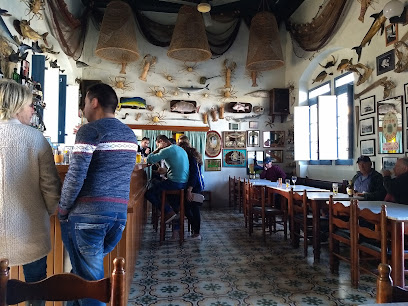
Castle Bar
Discover the delightful Castle Bar in Victoria, Gozo – a perfect blend of local flavor, cozy ambiance, and friendly vibes.
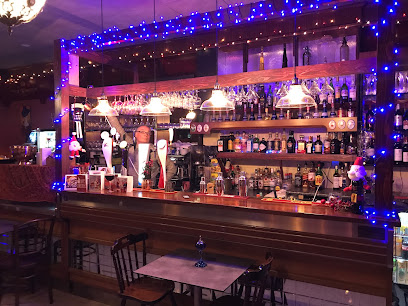
Olympic Wine Bar & Restaurant
Discover authentic Maltese and Mediterranean cuisine at Olympic Wine Bar & Restaurant in Xagħra, where every meal is a celebration of local flavors.
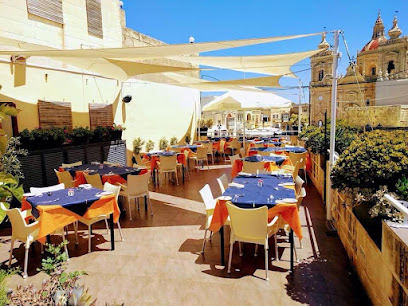
73 In the Square
Discover the vibrant atmosphere of 73 In the Square, a premier bar in Gozo, perfect for enjoying drinks and local culture in Pjazza Vitorja.
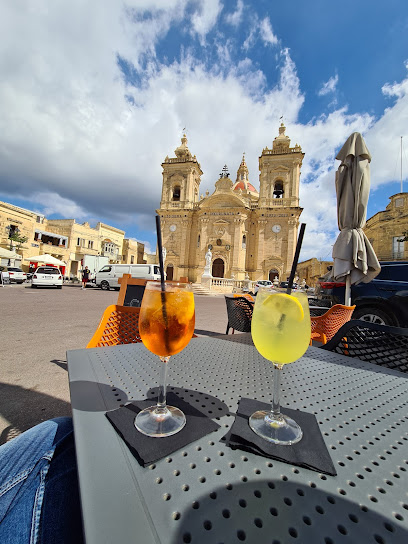
Horatio's Upper Deck
Discover the lively spirit of Horatio's Upper Deck, a top pub in Għajnsielem, Malta, known for its delicious pizza, cocktails, and sports atmosphere.
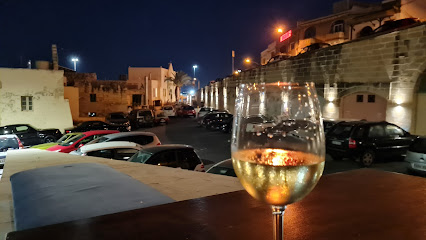
200 Bar
Experience the vibrant atmosphere and friendly service at 200 Bar in Żebbuġ, a must-visit for tourists exploring Gozo.
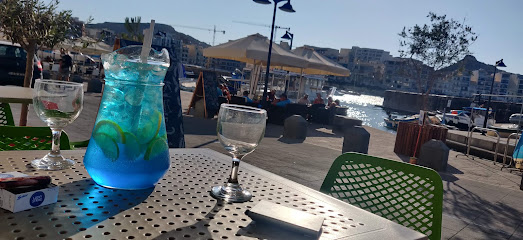
Stephen's Confectionery and Snack Bar
Discover a delightful escape at Stephen's Confectionery and Snack Bar in Gozo, where sweet treats and local flavors come together.
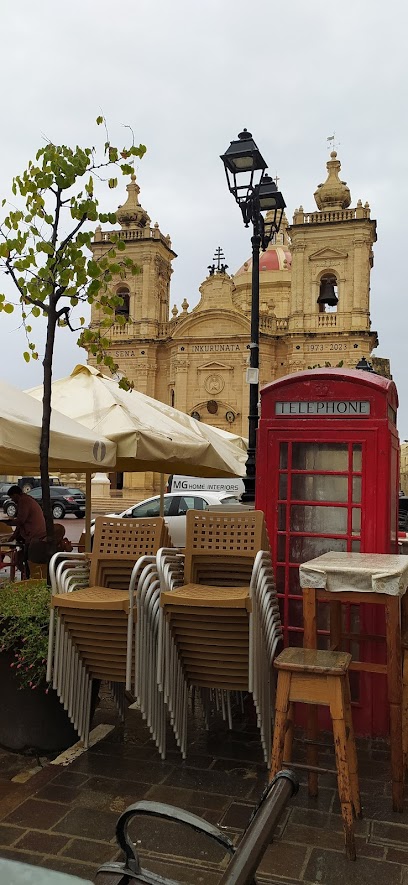
Il-Luzzu
Discover the vibrant ambiance of Il-Luzzu, a lively bar in Ghajnsielem, Malta, known for its exceptional cocktails and welcoming atmosphere.
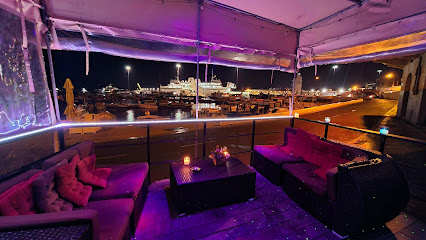
Local Phrases
-
- HelloMerħba
[mer-hba] - GoodbyeĊaw
[chaw] - YesIva
[ee-va] - NoLe
[leh] - Please/You're welcomeJekk jogħġbok
[yekk yogh-bok] - Thank youGrazzi
[grat-see] - Excuse me/SorrySkuzani
[skoo-za-nee] - How are you?Kif int?
[keef int] - Fine. And you?Tajjeb. U int?
[tai-yeb. oo int] - Do you speak English?Titkellem bl-Ingliż?
[tit-kel-lem bl-ingliz] - I don't understandMa nifhimx
[ma neef-heemsh]
- HelloMerħba
-
- I'd like to see the menu, pleaseNixtieq inara l-menu, jekk jogħġbok
[nisht-yek in-ara l-meh-noo, yekk yogh-bok] - I don't eat meatMa nixtieqx inaħżar it-tiġieġ
[ma nisht-yekh inah-zhar it-teeyej] - Cheers!Seħħ
[sehh] - I would like to pay, pleaseNixtieq inħallas, jekk jogħġbok
[nisht-yek in-hal-las, yekk yogh-bok]
- I'd like to see the menu, pleaseNixtieq inara l-menu, jekk jogħġbok
-
- Help!Għajni!
[ai-nee] - Go away!Mur!
[mur] - Call the Police!Ibqghu l-Pulizija!
[ib-ghu l-poo-lee-zee-ya] - Call a doctor!Ibqghu tabib!
[ib-ghu ta-beeb] - I'm lostInkejt
[ink-eet] - I'm illNixtieq tabib
[nisht-yek ta-beeb]
- Help!Għajni!
-
- I'd like to buy...Nixtieq inixtri...
[nisht-yek ini-stree] - I'm just lookingQed inħares biss
[kwehd in-ha-res bis] - How much is it?Kemm huwa?
[kem hoo-wa] - That's too expensiveDan huwa wisq sħiħ
[dan hoo-wa weesq shee] - Can you lower the price?Tista' tnaqqas il-prezz?
[tis-ta tnaq-kas il-prez]
- I'd like to buy...Nixtieq inixtri...
-
- What time is it?X'ħin huwa?
[shin hoo-wa] - It's one o'clockHuwa l-ewwel siegħa
[hoo-wa l-ew-wel see-eha] - Half past (10)Nofs il-għaxra
[noffs il-aakra] - MorningFilgħodu
[fil-gho-doo] - AfternoonWaranofsinhar
[wa-ra-nofs-in-har] - EveningWarax
[wa-rash] - YesterdayIlbieraħ
[il-bier-ah] - TodayIllum
[il-lum] - TomorrowGħada
[aada] - 1Waħda
[wah-da] - 2Tnejn
[tnejn] - 3Tlieta
[tlee-ta] - 4Erba'
[er-ba] - 5Ħamsa
[hamsa] - 6Sitta
[sit-ta] - 7Sebba'
[seb-ba] - 8Tmintax
[tmin-tax] - 9Disgħa
[dis-gha] - 10Għaxra
[aakra]
- What time is it?X'ħin huwa?
-
- Where's a/the...?Fejn hemm...
[fayne hemm] - What's the address?X'inhu l-indirizz?
[shin-hoo l-indi-reetz] - Can you show me (on the map)?Tista' turiini (fuq il-mappa)?
[tis-ta tu-ree-nee fooq il-map-pa] - When's the next (bus)?Meta huwa l-isbaħ li jmiss?
[me-ta hoo-wa l-is-ba li y-miss] - A ticket (to ....)Biljett (għal ....)
[bil-yet (al ....)]
- Where's a/the...?Fejn hemm...
History of Gozo
-
Gozo's history dates back to the Neolithic period, around 3600-3200 BC. The Ġgantija Temples, located in Xagħra, are among the world's oldest free-standing structures. These megalithic temples are part of the UNESCO World Heritage Sites and are believed to be dedicated to a fertility deity. The Ġgantija complex consists of two temples constructed with massive limestone blocks, showcasing the advanced architectural skills of its builders.
-
During the first millennium BC, the Phoenicians established trade routes through the Mediterranean, and Gozo became a crucial stopover. Evidence of Phoenician presence includes various artifacts and the construction of temples. Later, the island fell under Roman rule in 218 BC. The Romans called Gozo 'Gaulos' and developed it further, leaving behind numerous relics such as the Roman baths and villas, particularly in the locality of Ramla Bay.
-
In the early medieval period, Gozo experienced a series of conquests. The Arabs conquered the Maltese islands in 870 AD, introducing advanced agricultural techniques and new language influences. In 1091, the Normans led by Count Roger I of Sicily captured Gozo, marking the beginning of Christian rule. The medieval period saw the construction of fortified structures, including the Cittadella in Victoria, which served as a refuge from pirate attacks.
-
The Order of the Knights of St. John (1530-1798) played a significant role in shaping Gozo's history. They fortified the island to protect it from Ottoman invasions and established a network of coastal watchtowers. The Knights improved the Cittadella, turning it into a formidable fortress. Their influence extended to the cultural and architectural landscape, as seen in the baroque churches and palaces that dot the island.
-
In 1798, Napoleon Bonaparte's forces captured Malta, including Gozo. However, the French occupation was short-lived due to local resistance and British intervention. By 1800, Gozo came under British rule, which lasted until Malta's independence in 1964. The British era brought about significant infrastructural developments, including the introduction of modern education systems, medical facilities, and the construction of roads and harbors.
-
World War II left a profound impact on Gozo. Although the island was less targeted than the main island of Malta, it still suffered from air raids and food shortages. The local population displayed remarkable resilience, contributing to the war effort through agriculture and support for the Allied forces. The war years are remembered for the community's solidarity and the strategic importance of Malta in the Mediterranean theater.
-
Today, Gozo is a vibrant blend of historical heritage and modern amenities. The island has preserved its traditional crafts, including lace-making and agriculture, while also embracing tourism and technological advancements. Modern Gozo boasts a rich cultural calendar, with festivals celebrating everything from religious feasts to contemporary arts. The island's scenic beauty, coupled with its historical sites, makes it a unique destination for travelers.
Gozo Essentials
-
Gozo, Malta's sister island, is accessible by ferry from the main island of Malta. The ferry departs from Ċirkewwa on Malta and arrives at Mġarr Harbour in Gozo. The journey takes approximately 25 minutes. Regular ferry services operate daily, and tickets can be purchased at the terminal or online. For those arriving by air, Malta International Airport (MLA) in Luqa is the nearest airport. From the airport, you can take a taxi, bus, or car rental to Ċirkewwa ferry terminal.
-
Gozo is small and easy to navigate. Public buses are available and connect all major towns and attractions. Taxis are also available but can be more expensive. Renting a car or scooter offers the most flexibility for exploring the island. Bicycles are another popular option, especially for those who enjoy a more active way of seeing the sights. Walking is feasible within towns and to nearby attractions.
-
The official currency in Malta, including Gozo, is the Euro (EUR). Credit and debit cards are widely accepted in hotels, restaurants, and shops. However, it's advisable to carry some cash, especially when visiting smaller establishments or rural areas. ATMs are readily available in most towns and villages.
-
Gozo is generally very safe for tourists. Crime rates are low, but standard travel precautions should still be observed. Avoid leaving valuables unattended and be cautious when walking alone at night. There are no specific high-crime areas targeting tourists. Always stay vigilant and aware of your surroundings.
-
In case of emergency, dial 112 for immediate assistance. This number connects to police, fire, and medical services. The main hospital, Gozo General Hospital, is located in Victoria and offers comprehensive medical services. Pharmacies are available in most towns for minor health issues. It is recommended to have travel insurance that covers medical emergencies.
-
Fashion: Do dress modestly, especially when visiting religious sites. Avoid overly revealing clothing. Religion: Do respect local customs and traditions. Always cover your shoulders and knees when entering churches. Public Transport: Do be courteous and give up your seat to elderly passengers. Don't eat or drink on public transport. Greetings: Do greet people with a handshake or a simple 'hello.' Eating & Drinking: Do try local dishes like rabbit stew and cheeselets. Don't refuse food offerings, as it is considered impolite.
-
To experience Gozo like a local, visit the local markets such as It-Tokk in Victoria where you can buy fresh produce and traditional Gozitan goods. Engage with locals, as they are often friendly and willing to share stories about the island's history and culture. Don't miss visiting the Ġgantija Temples, which are older than the pyramids of Egypt. For a unique experience, attend a local festa, where you can enjoy fireworks, music, and traditional food.
-
The best time to visit Gozo is during the spring (April to June) and autumn (September to November), when the weather is pleasant and the island is less crowded. Summer (July to August) can be hot and busy, especially with locals and tourists flocking to the beaches. Winter (December to February) is mild, but some attractions may have reduced hours.
-
The official languages of Malta are Maltese and English. English is widely spoken and understood, making it easy for tourists to communicate. Learning a few basic phrases in Maltese, such as 'Bonġu' (Good morning) and 'Grazzi' (Thank you), can be appreciated by the locals.
Trending Landmark in Gozo
-
Bażilika Tal-Madonna Ta' Pinu Mill Gharb
-
It-Tempji tal-Ġgantija
-
Salt Pans
-
Inland Sea Dive Site
-
Foso e Interior Citadelle De Victoria
-
Wied il-Għasri
-
Wied il-Mielaħ
-
Tal-Mixta Cave
-
Villa Rundle Gardens
-
Mġarr ix-Xini
-
St George's Basilica
-
Rotunda St. John Baptist Church
-
Cittadella Walkway
-
Ta' Ċenċ Cliffs
-
Cathedral of the Assumption
Nearby Cities to Gozo
-
Things To Do in Xaghra
-
Things To Do in Xewkija
-
Things To Do in Marsalforn
-
Things To Do in Xlendi
-
Things To Do in Mellieha
-
Things To Do in Mgarr
-
Things To Do in Bugibba
-
Things To Do in Qawra
-
Things To Do in Mdina
-
Things To Do in Rabat
-
Things To Do in St. Julian's
-
Things To Do in Gzira
-
Things To Do in Sliema
-
Things To Do in Marsa
-
Things To Do in Valletta













